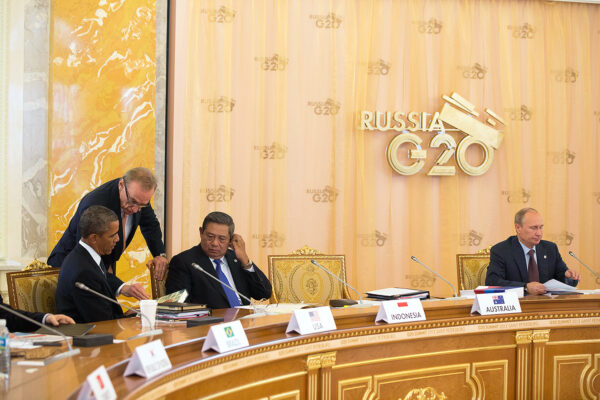
Russian president Vladimir Putin has called for a referendum to approve constitutional changes that would nominally hand more power to parliament.
The changes, if approved, might improve Russia’s rating in the Freedom House index, but democracy is probably not on his mind.
Only hours after his yearly address to the combined Federal Assembly, in which he made his proposals, Putin accepted the resignation of Prime Minister Dmitri Medvedev and replaced him with the little-known head of the Federal Tax Service, Mikhail Mishustin.
The moves have left both Russians and Russia experts wondering: what’s happening? And what’s next?
Constitutional changes
Putin has proposed holding Russia’s first nationwide referendum since 1993. He wants to amend the Constitution to:
- Give the lower chamber of parliament, rather than the president, the power to appoint the prime minister, who, in turn, would appoint the members of cabinet;
- Give the upper chamber, the Federal Council, the right to consult on the appointment of security chiefs;
- Give the Federation Council the power to remove judges from Russia’s highest courts; and
- “Firm up” the role of the State Council, a somewhat secretive advisory body of regional governors and officials selected by the president.
Putin didn’t elaborate on what “firming up” the role of the State Council would mean.
Term limit
On paper, the proposed changes would all weaken the presidency. But they are more likely part of an effort to cement Putin’s role as the uncontested leader of Russia even after his mandate expires in 2024.
Putin is currently serving a second consecutive term and his fourth as president since 2000. He switched places with Medvedev in 2008 to circumvent a constitutional ban on serving more than two terms without interruption.
Medvedev has been named deputy chairman of the State Council, which looks like a demotion.
Scenarios
Analysts postulate two scenarios.
One is a repeat of the 2008-12 interregnum. Putin takes the prime ministership in four years and installs a crony as president but continues to exert power behind the scenes.
However, that doesn’t explain Putin’s wish to enshrine the role of the State Council in the Constitution.
Another possibility is that he envisages this body as Russia’s future de facto ruling council. That would be similar to Kazakhstan, where Nursultan Nazarbayev has formally stepped down as president but remains in control as chairman of the Security Council.
Or perhaps Putin hasn’t decided on either course yet and revising the Constitution is a way to keep his options open.
